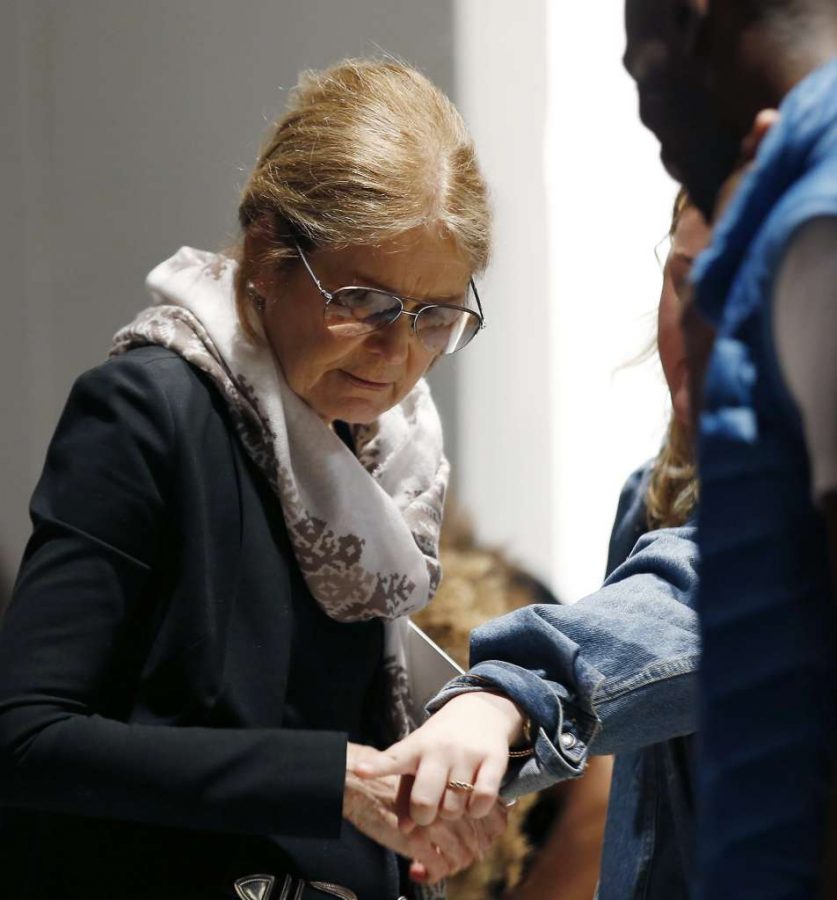New York Fashion Week: more than just a trend
Designers weave politics into work
The fashion runway has hardly been a stranger to political statements, and this year, brands used Fashion Week as a stage to advocate activism for women’s rights, LGBTQ+ rights, and body diversity.
Designer Prabal Gurung delivered an empowering feminist statement at his debut show during New York Fashion Week, celebrating the strength and grace of women in a collection largely inspired by the Mosuo, a matriarchal tribe in China.
Vibrant hues and textures dominated this line; fuchsia mandala-print scarves, blue sequined skirts with beaded fringe, and degradé ostrich feathers were just a few of the pieces worn in this show.
Gurung also invited #MeToo founder, Tarana Burke, to sit front in the row.
Addressing the array of colors in his collection, Gurung said, “I respect the solidarity of wearing black, but I don’t want to get to a place where women have to suppress their sense of self. Where I am from [Nepal], color can be a show of strength.”
Italian knitwear brand Missoni also made a bold statement in Milan Fashion Week by sending its models at the end of the show to march down the runway all wearing the iconic pink “pussy hats” as a show of solidarity among women.
The pussy hats feature two pointed ends that resemble cat ears, and though they were initially made to be worn during the Women’s March, they now represent a symbol of resistance to misogyny. Similarly in New York Fashion Week, Tom Ford’s flashy, ‘80s themed collection featured bedazzled “Pussy Power” purses and pumps down the runway.
The political activism in these runways is undeniable. Senior Liam Oh considers fashion a form of art, and believes that to say politics doesn’t have a place in fashion is similar to people saying that politics doesn’t have a place in theater or cinema.
I think that’s a narrow minded view of the world. It’s counter intuitive and non-productive to say that politics doesn’t belong in art, because what’s the point of expressing things if they don’t have a political view?”
While Gurung, Missoni, and Ford focused on the strength of women. Alice + Olivia’s Stacey Bendet had a different take on her message of empowering women.
Her show featured a theme of “Alice + Olivia University” for her Fall 2018 collection, a theme that was unique in that it drew from the early stages of the feminist movement. The show included a “We the Women” Bill of Rights, and images of suffragettes provided the backdrop for many of the looks.
In her show notes, Bendet wrote that, “By looking at the women’s movement past and present, I wanted this presentation to pay homage to strong women throughout history, to show how far we have come and how far we still need to go.”
Along with feminist messages strutting the runway, Desmond Napoles, a self proclaimed ‘drag kid’ blazed the way for LGBTQ+ models, becoming the youngest drag star to walk New York Fashion Week in Gypsy Sport’s Fall 2018 Collection.
The 10 year old is an inspiring LGBTQ+ advocate, and hit the runway in a black corseted look and slicked silver hair.
“Gypsy Sport was definitely one of the more talked about shows based on the fashion blogs I read, because this is a brand that takes people from all sizes, identities, and walks of life and uses them as models. They’re sending a message that models aren’t just skinny tall girls, and muscular tall men; they can be people all around the spectrum,” said senior Jack Mosele.
Moreover, diversity in race and body type was also celebrated in Chromat’s show, a brand renowned for advocating for the beauty of all women. Chromate featured several plus sized models and an amputee singer-songwriter who walked the show with a prosthetic leg.
Breast cancer survivor Ericka Hart also exposed her double mastectomy scars while wearing a sheer, neon look.
Fashion has always been more than just runways and models. It’s a microcosm for activism and bold statements, for creativity and bold ideas. It’s more than just a way of dress or appearance. As Mosele put it, “Fashion is a way to express yourself; it’s an art form. Art has always been political by sending messages to people, so why can’t fashion?”







































